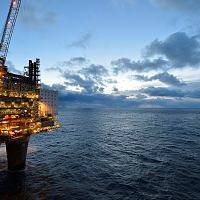Statoil Likely to Pick Floating Facility for Big Arctic Field
Statoil is more likely to develop the $15.5 billion Johan Castberg field in the Arctic using a floating production storage and offloading (FPSO) installation than via an oil terminal on land, a senior company executive said on Thursday.
Last year the oil firm suspended the development of its flagship Arctic project due to cost inflation and a tax hike.
Finding more resources was key to making the project economically viable but earlier this month the firm said the results of the latest and final, round of drilling were disappointing.
Two options were on the table: to transport the oil from the field to a terminal on land where tankers would load up, or have an FPSO at the field and load vessels there.
"It is clear that there had been a negative development with the search (for more oil and gas resources). It is clear it weakens the option of having a terminal on land," Ivar Aasheim, Statoil's director of field development off Norway, told Reuters.
"A terminal is very good if you have large volumes," he said on the margins of an oil and gas seminar.
Production is projected to start in 2020, he said. The original plan, before the delay, was for production to start in 2019.
The base case for daily production is for 30,000 cubic metres of oil per day, he said.
Aasheim said Statoil would give an update on the status of the project "before the summer holidays", which in Norway tend to start in July.
Statoil is the operator of Johan Castberg and has a stake of 50 percent. Italy's Eni has a stake of 30 percent and Norwegian state-owned firm Petoro holds the remaining 20 percent.
(By Gwladys Fouche, Editing by William Hardy)




